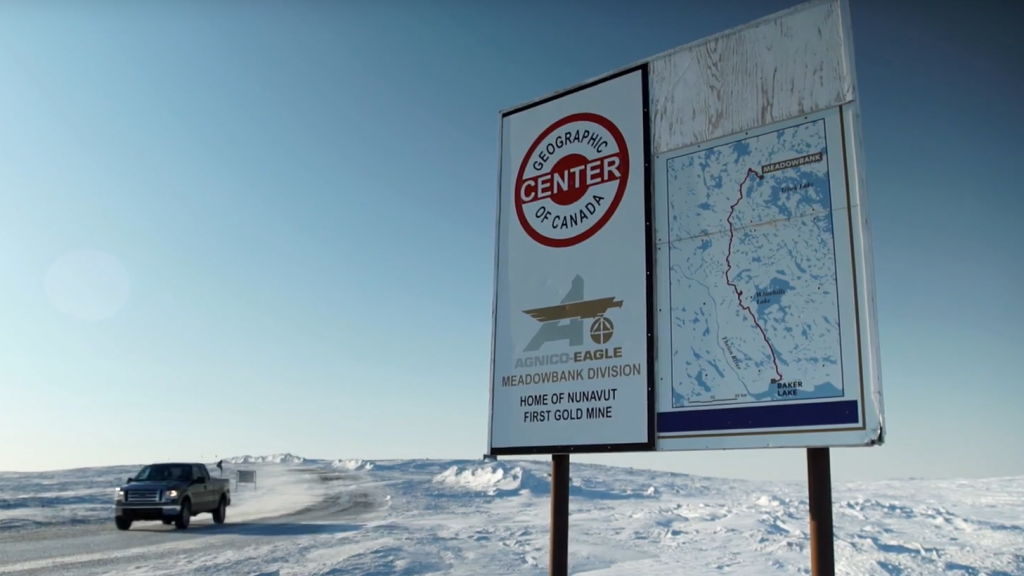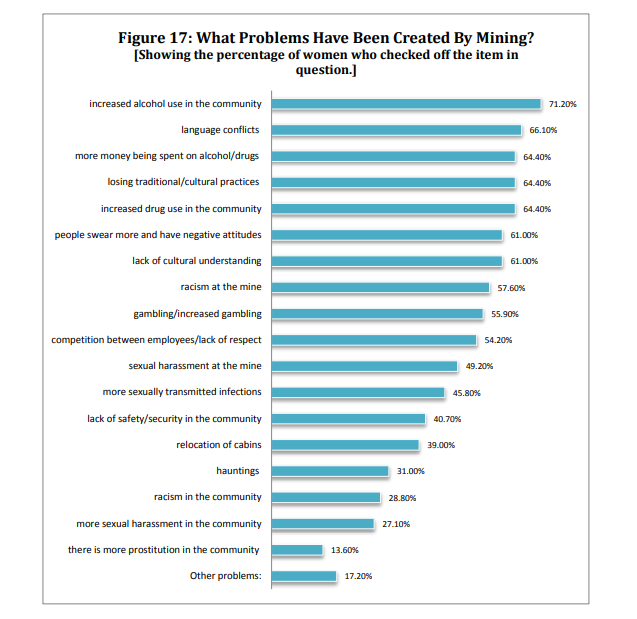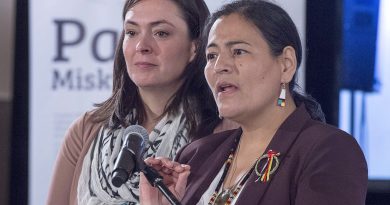Pauktuutit to explore challenges confronting Inuit women in Canada’s extractive industry

Canada’s national women’s organization is working to launch a new project to better understand the violence and harassment faced by Inuit women working in the resource industry.
“Pauktuutit is moving forward on this important issue now because we are building on research we did in partnership with the University of British Columbia in 2016,” the organization said referring to its study “The Impact of Resource Extraction on Inuit Women and Families in Qamani’tuaq, Nunavut Territory,” that looked at the social impacts of the Meadowbank Mine in the community of Baker Lake, Nunavut.
The report found that although the mine contributed economically to the community, there had been serious social and and cultural impacts reported by women who participated in the study including sexual harassment at the mine (49.2%), increased harassment in the community (28.8%), an increase in sexually transmitted infections (45.8%) and more prostitution in the community (13.6%).
“The data we collected tells us that resource extraction can provide economic opportunities for communities in Inuit Nunangat (the Inuit regions of Canada) – but the social, economic and safety issues from this industry disproportionately impact Inuit women,” the organization said in emailed comment to Eye on the Arctic on Friday.

“As the national representative organization of Inuit women in Canada, we are working towards Inuit women’s full involvement in economic opportunities and raising awareness of their rights to safe and harassment-free workplaces in all industries,” Pauktuutit said. “By identifying issues and policy gaps, we will work with resource extraction leaders to develop culturally-relevant policies aimed at improving the safety of Inuit women and their communities.”
Three-year project
The project will start off by sending surveys to Inuit women who work or who have worked in the extraction industry.
The questionnaires will go out in all four of Canada’s Inuit land claims regions: the Inuvialuit Settlement Region in Canada’s Northwest Territories, Canada’s eastern Arctic territory of Nunavut, Nunavik in Arctic Quebec, and Nunatsiavut, the Inuit region in the Atlantic Canadian province of Newfoundland and Labrador.
The results will be analyzed in the second year of the project, and culturally appropriate policies and procedures will be elaborated to protect Inuit women at mining and extraction sites.
The last year of the project will focus on creating draft models and pilots.
“This project is intended to address the barriers to successful employment encountered by Inuit women in the resource extraction industry by identifying the institutional practices that fail to effectively address the issue of workplace sexual harassment and violence,” Pauktuutit said in a request for proposal put out on Wednesday.
“Over three years, the project will identify and address the spectrum of violence encountered by Inuit women working in the resource extraction industry by cultivating safe and secure workplace environments.”
The request for proposal closes on March 15.
Write to Eilís Quinn at eilis.quinn(at)cbc.ca
Related stories from around the North:
Canada: Mining and energy projects near Indigenous communities undermine women’s safety, inquiry hears, CBC News
Finland: Swedish-speaking Finnish women launch their own #metoo campaign, Yle News
Sweden: Nordics report high abuse levels against women, Radio Sweden
United States: Survey finds violence against women widespread in Western Alaska region, Alaska Dispatch News



